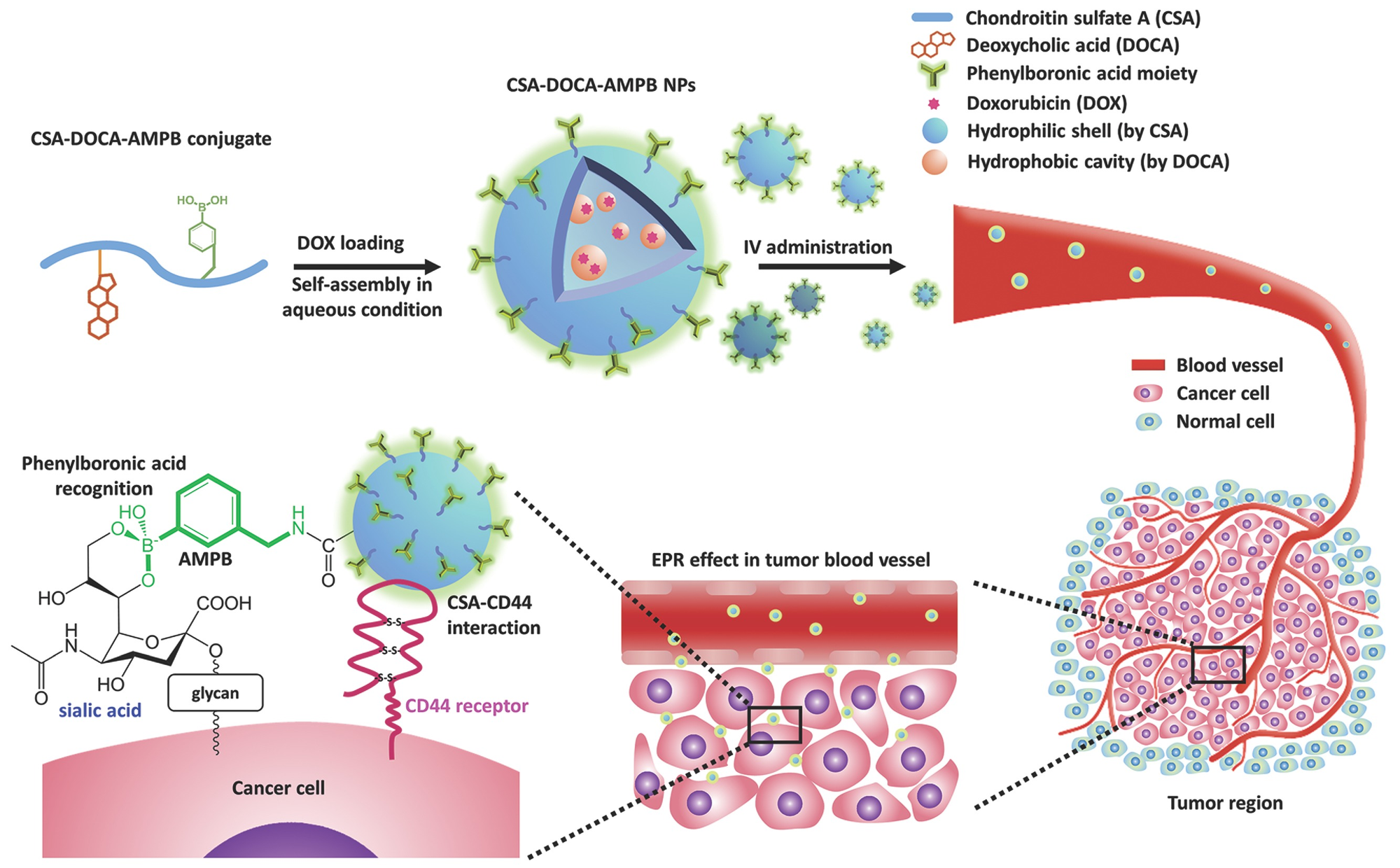Advanced Functional Materials (2015), first-author, 19.924
Abstract
Phenylboronic acid-functionalized chondroitin sulfate A (CSA)–deoxycholic-acid (DOCA)-based nanoparticles (NPs) are prepared for tumor targeting and penetration. (3-Aminomethylphenyl)boronic acid (AMPB) is conjugated to CSA–DOCA conjugate via amide bond formation, and its successful synthesis is confirmed using proton nuclear magnetic resonance spectroscopy (1H-NMR). Doxorubicin (DOX)-loaded CSA–DOCA–AMPB NPs with a mean diameter of ≈200 nm, a narrow size distribution, negative zeta potential, and spherical morphology are prepared. DOX release from NPs is enhanced at acidic pH compared to physiological pH. CSA–DOCA–AMPB NPs exhibit improved cellular uptake in A549 (human lung adenocarcinoma) cells and penetration into A549 multicellular spheroids compared to CSA–DOCA NPs as evidenced by confocal laser scanning microscopy and flow cytometry. In vivo tumor targeting and penetrating by CSA–DOCA–AMPB NPs, based on both CSA–CD44 receptor and boronic acid–sialic acid interactions, is revealed using near-infrared fluorescence (NIRF) imaging. Penetration of NPs to the core of the tumor mass is observed in an A549 tumor xenografted mouse model and verified by three-dimensional NIRF imaging. Multiple intravenous injections of DOX-loaded CSA–DOCA–AMPB NPs efficiently inhibit the growth of A549 tumor in the xenografted mouse model and increase apoptosis. These boronic acid-rich NPs are promising candidates for cancer therapy and imaging.
Schematic illustration about tumor targeting and penetrating action of CSA–DOCA–AMPB/DOX NPs.
.png&blockId=484d951f-4a74-4ba5-ac0c-97a71142f0d7)
